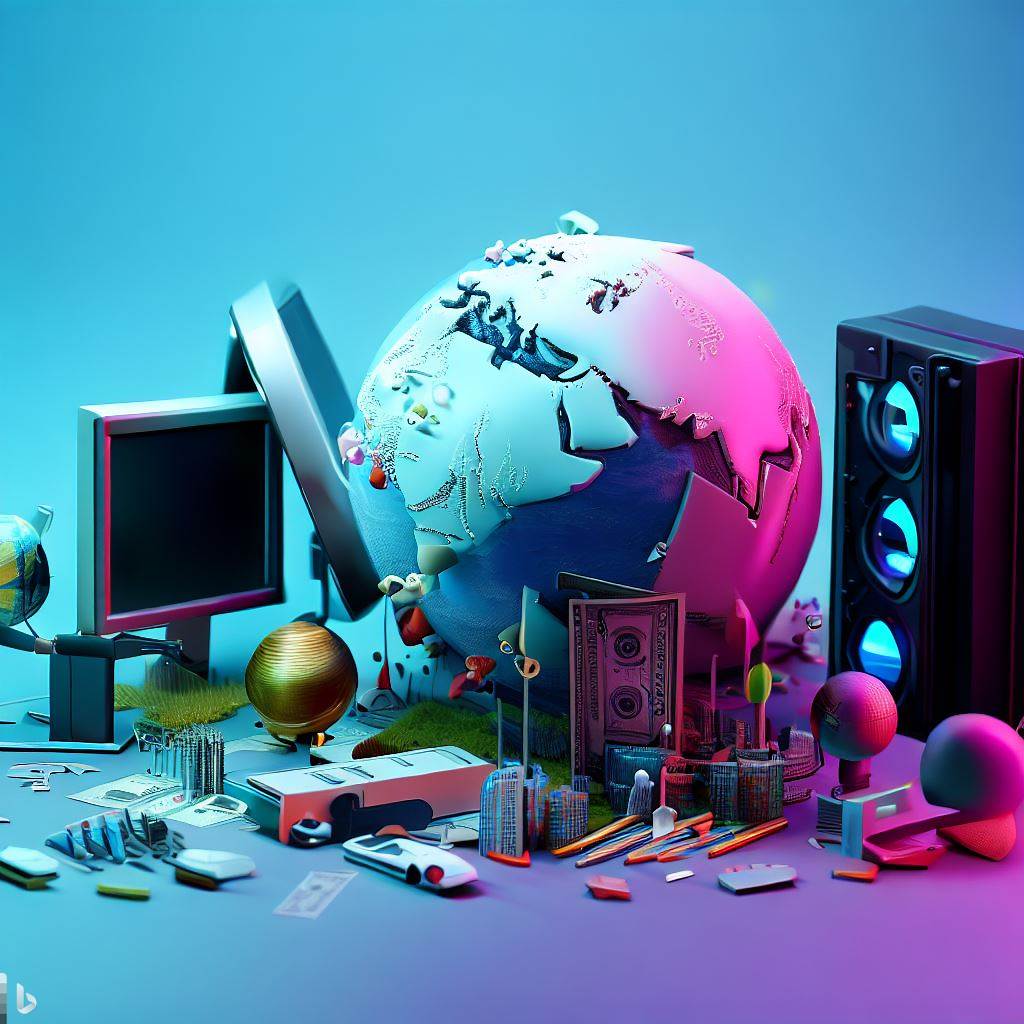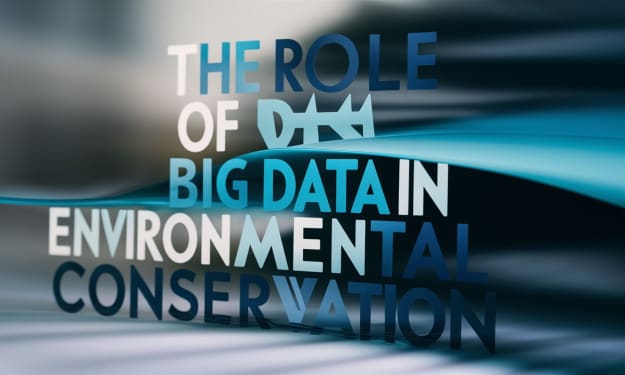
The global economy has clearly been transformed by technology, which has changed industries, facilitated international trade, and increased productivity. Technology breakthroughs have become important drivers of economic growth and innovation, from the emergence of the internet to the rise of artificial intelligence (AI). Technology does, however, come with its share of hazards and difficulties, despite the fact that it offers many potentials for wealth. The impact of technology on the global economy—both positive and negative—will be discussed in this article.
Pros of Technology on the Global Economy

1. Increased Productivity and Efficiency:
The increase in productivity and efficiency is one of technology's most important benefits to the world economy. Businesses may now automate repetitive processes and streamline operations thanks to automation, machine learning, and robots, which leads to increased productivity and lower operating expenses. Increased output and improved processes can help businesses compete more successfully on a global scale, which promotes economic expansion.
2. Global Connectivity and Communication:

The internet and improvements in communication technologies have radically increased global connectivity. Businesses can now readily access worldwide markets, interact with clients abroad, and work with partners across international borders. This connectivity promotes global trade and opens up new prospects for economic growth. The ability of small and medium-sized businesses (SMEs) to compete internationally has levelled the playing field with larger organizations.
3. Innovation and Economic Diversification:
Technological progress fosters innovation across a range of industries, promoting economic diversification. Now that disruptive product or service development is more affordable for start-ups and small firms, it is threatening established markets and promoting economic change. New opportunities for economic growth have been made possible by technologies like 3D printing, block chain, and renewable energy, which also encourage sustainability and resilience.
4. Access to Knowledge and Information:
The internet acts as a vast informational database, providing access to a multitude of information and learning materials. People all across the world can learn new skills thanks to the democratization of knowledge, which improves their employment and financial prospects. Learning has become more accessible because to the availability of educational resources and online courses, empowering people from all walks of life to advance their knowledge and participate in the global economy.
5. E-commerce and Digital Marketplaces:
Global trade has increased and geographical restrictions have been removed thanks to the growth of e-commerce platforms and online marketplaces. Businesses can now reach consumers globally, and consumers enjoy having more options, which encourages economic growth between borders. Retail has been changed by the ease of internet buying, which has expanded business operations outside traditional brick-and-mortar storefronts and created new marketplaces for goods and services.
6. Financial Inclusion:
Has improved due to digital financial services and mobile payment technologies, especially in developing nations. Through these technologies, those who do not have access to traditional banking services can conduct financial transactions, giving them more power to take an active role in the economy. Millions of people have been lifted out of poverty by having access to digital banking services and microfinance platforms, creating prospects for economic expansion and entrepreneurship.
Cons of Technology on the Global Economy

1. Job Disruption and Inequality:
Although technology increases productivity, it can also result in job loss and widening income disparity. Certain job roles may be replaced by automation and AI-powered systems, forcing some workers out of work or forcing them to reskill for alternative roles. The salary gap between skilled and unskilled workers may widen as a result. To prepare the workforce for the digital age, businesses and governments alike must fund education and retraining initiatives.
2. Data Privacy and Security Concerns:
A growing number of people are concerned about data security and privacy as technology becomes more pervasive. Consumer and business trust in the digital economy is being eroded by cyberattacks and data leaks, which might ultimately impede economic growth. In the digital age, finding a balance between using data for economic gain and protecting personal information is still a major concern.
3. Technology Dependence
A country's economy may be more susceptible to disruptions brought on by system failures, cyberattacks, or natural disasters if it depends heavily on technology. Global economic losses and extensive disruptions can result from a single technical failure. To reduce these risks, governments and businesses must invest in reliable infrastructure and cybersecurity measures.
4. Environmental Impact:

Technology can improve procedures and cut waste, but it also adds to environmental problems. Electronic waste is created during the manufacture and disposal of electronic equipment, and the energy use of data centres and digital infrastructure results in significant carbon footprints. Promoting sustainable behaviours and responsible consumption is essential for sustaining economic growth and protecting the environment as technology develops further.
5. Digital Divide:
Access to technology and online resources is not universal across all geographic areas and populations. The digital divide may result in unequal access to economic possibilities, which could impede the development of underprivileged communities and people. To close this gap and encourage equitable economic growth, governments must invest in enhancing digital infrastructure and making sure that everyone has access to inexpensive internet.
6. Intellectual Property and Copyright Concerns:
Issues with intellectual property and copyright infringement have emerged in the digital age. Debates regarding proper pay for artists have arisen as a result of how simple it is to reproduce and distribute digital content, potentially limiting innovation in some sectors. For the sake of a healthy global economy, it is essential to strike a balance between the protection of intellectual property and the encouragement of creativity.
Technology's influence on the world economy presents both opportunities and difficulties. A more integrated and dynamic economic landscape is produced by the benefits of greater productivity, global connection, and innovation. The drawbacks, such as lost jobs, data privacy issues, environmental effects, and the digital divide, serve as a reminder that we must proceed cautiously with technological innovation.
Governments, organizations, and individuals must collaborate to promote equitable growth, invest in digital infrastructure, and place a high priority on cybersecurity and data protection in order to maximize the positive consequences of technology while minimizing its negative ones. By doing this, we can fully utilize technology to build a more affluent and sustainable global economy that benefits everyone.
About the Creator
Tshepo
Tshepo Kekana is a 21-year-old black writer from Pretoria
, Gauteng, South Africa. Passionate about storytelling and promoting diverse voices. In love with nature, books and FOOD.






Comments
There are no comments for this story
Be the first to respond and start the conversation.